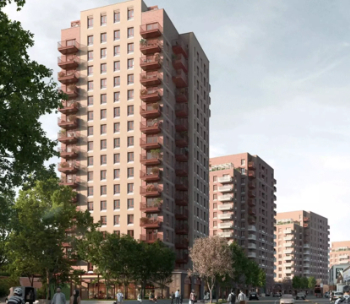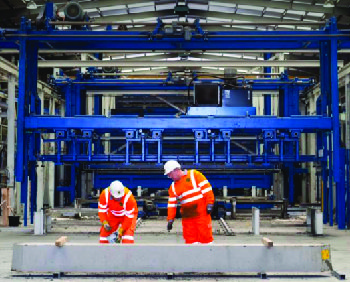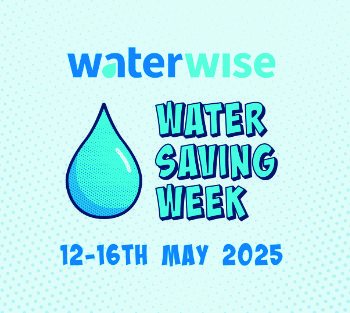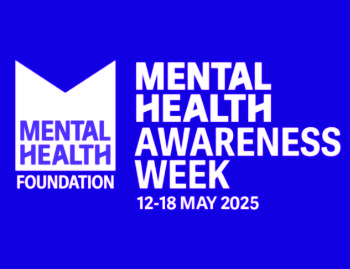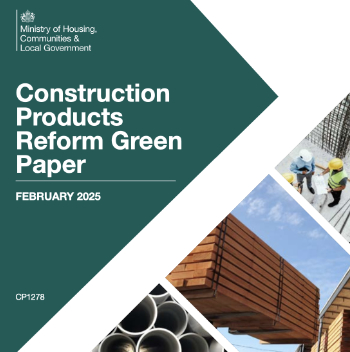How we should regulate the real estate industry
In places like Dubai, where real estate accounts for 20% of GDP (compared to an average of 7% in most other countries), governments need to reconsider regulation of the real estate sector. This is necessary in order to ensure that the sector continues to be healthy, transparent, professional and anti-fragile, while keeping the whole economy in balance.
The Great Recession of 2007 has taught us a costly lesson of what it means for a real estate sector to be out of control. There was a financial loss of more than $14 trillion in the United States alone, and more than 20 million jobs were lost worldwide, according to the International Labour Organization.
This was a crisis of confidence, when people’s trust in governments and businesses were at an all-time low. Unfortunately, this trend continues until this day. Therefore, governments and businesses need to find a formula to regain people’s confidence, as traditional regulation of real estate has proven ineffective.
Governments need to create and enforce high quality governance practices for the industry, while still leaving room for creativity and innovation. In Dubai, we have developed a code of governance for real estate developers, putting end users and investors at the forefront. However, Dubai still lags behind more than 40 economies worldwide, according to JLL’s Real Estate Transparency Index.
One of the reasons for this is that the real estate market does not have official, and therefore credible, access to performance indices or accurate information on supply, demand, property sales prices, ownership records and other important market variables.
These things, of course, reflect on the quality of foreign direct investment (FDI) in the real estate market, as we see more individual investors, rather than high quality institutional investors. In turn, this lack of quality investors affects everything from affordable sales and rent prices to disregard for laws protecting tenants’ rights.
I am honoured to be part of International Ethics Coalition, working on global ethics standards for the real estate industry, as lack of high standards of ethics were one of key issues raised in the crisis. This work is near completion, and will add a layer of transparency to the industry.
As the MENA representative of the UN Global Compact, applying the 10 principles of human rights, labour rights, environmental protection and anti-corruption, we have discovered that, throughout the world, real estate is one of the sectors that least adheres to sustainability and best practices. Real estate, as an industry affecting everyone’s lives, should integrate stakeholders in its vision, strategies and businesses.
The industry must be held accountable, knowing that more than 800 million people do not have adequate housing, and 330 million are financially overstretched. The real estate industry has a social responsibility of solving the widening global housing affordability disaster, while discussing effective implementation of the Sustainable Development Goals.
Worldwide, governments themselves have failed miserably at solving the affordability issue, and it is now up to the 5 P’s (Planet, People, Public & Private Partnership) to help find a resolution. This is not to say that governments should be allowed to wash their hands of all responsibility, but that everyone needs to work towards a solution.
The roadmap for the future of the real estate market should be based on:
- Governments strengthening real estate market transparency, governance and resilience, linking it to the country’s vision and future.
- Transparency, governance and affordability needs to be looked at from a competitiveness point-of-view, given their impact on a country’s competitiveness and FDI attraction capabilities.
- Housing affordability should be at the centre of each government’s urban policies and economic strategies, in a way that capitalises on the multiple stakeholders.
- Continuous monitoring of the real estate market and its cycle is important for an anti-fragile real estate market that avoids crises, and cycles in a way that benefits the economy, and emerges stronger.
As UN Secretary General, Ban Ki-Moon stated: “Our times demand a new definition of leadership – global leadership. They demand a new constellation of international cooperation – governments, civil society and the private sector, working together for a collective global good.” This very much includes the real estate sector.
Written by Mahmoud Hesham El Burai CEO, Dubai Real Estate Institute, Dubailand, United Arab Emirates
This article was also published on the Future of Construction Knowledge Sharing Platform and the WEF Agenda Blog.
--Future of Construction 16:08, 16 Jun 2017 (BST)
[edit] Related articles on Designing Buildings Wiki
- Construction is an industry ripe for tech disruption.
- ConTech.
- Developer.
- How technology is changing the real estate industry.
- Industry Disruption: 10 ways real estate is changing.
- Investment property.
- Real estate.
- Real estate - going from villain to hero.
- Real estate in the augmented age.
- Real estate investment trust REIT.
- The future of the built environment in a revolutionary age.
- The key trends making our cities greener, safer and smarter.
Featured articles and news
Deputy editor of AT, Tim Fraser, discusses the newly formed society with its current chair, Chris Halligan MCIAT.
Barratt Lo-E passivhaus standard homes planned enmasse
With an initial 728 Lo-E homes across two sites and many more planned for the future.
Government urged to uphold Warm Homes commitment
ECA and industry bodies write to Government concerning its 13.2 billion Warm Homes manifesto commitment.
Places of Worship in Britain and Ireland, 1929-1990. Book review.
The emancipation of women in art.
CIOB Construction Manager of the Year 2025
Just one of the winners at the CIOB Awards 2025.
Call for independent National Grenfell oversight mechanism
MHCLG share findings of Building Safety Inquiry in letter to Secretary of State and Minister for Building Safety.
The Architectural Technology Awards
AT Awards now open for this the sixth decade of CIAT.
50th Golden anniversary ECA Edmundson awards
Deadline for submissions Friday 30 May 2025.
The benefits of precast, off-site foundation systems
Top ten benefits of this notable innovation.
Encouraging individuals to take action saving water at home, work, and in their communities.
Takes a community to support mental health and wellbeing
The why of becoming a Mental Health Instructor explained.
Mental health awareness week 13-18 May
The theme is communities, they can provide a sense of belonging, safety, support in hard times, and a sense purpose.
Mental health support on the rise but workers still struggling
CIOB Understanding Mental Health in the Built Environment 2025 shows.
Design and construction material libraries
Material, sample, product or detail libraries a key component of any architectural design practice.
Construction Products Reform Green Paper and Consultation
Still time to respond as consultation closes on 21 May 2025.
Resilient façade systems for smog reduction in Shanghai
A technical approach using computer simulation and analysis of solar radiation, wind patterns, and ventilation.










